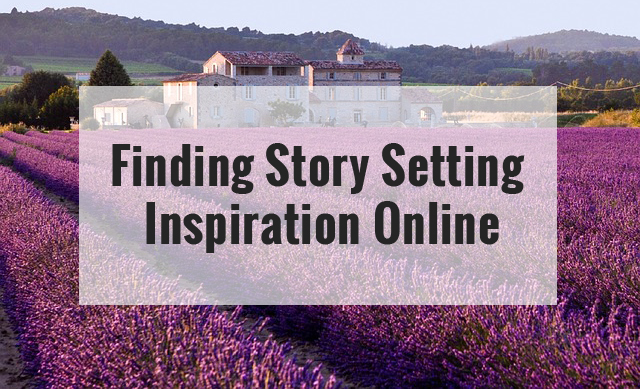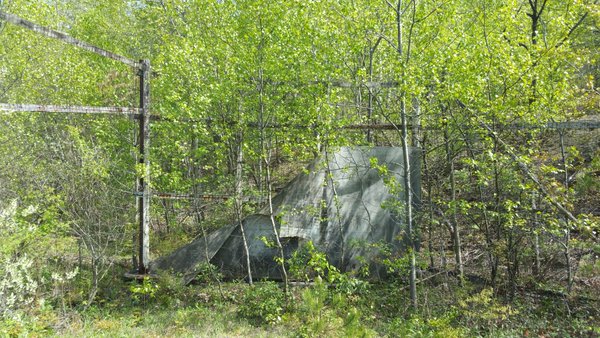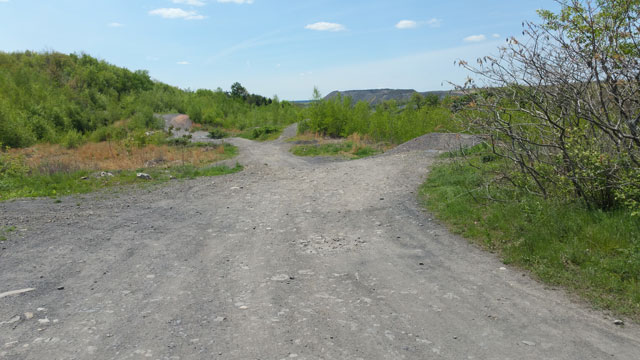
Maybe you want to set a story in an exotic location you've never visited. Or perhaps you're creating an entirely fictional setting for your book. How are you supposed to describe real (or just realistic) locations if you can't show up, meet some locals, and check out similar areas for yourself?
Whether you realize it or not, story setting inspiration is right at your fingertips, 24/7.
I'm a big fan of visiting locations your stories are set in if at all possible. It's one of the reasons I take and share my own photographs in a series of posts on my horror author blog. For examples, check out my recent post from a visit to Centralia (a near ghost town in Pennsylvania due to a burning mine fire underneath) or my post featuring photos around my hometown in Brooklyn.
I'm always looking for subtle inspiration for my next story. It doesn't have to be an entire neighborhood or small town. Sometimes it's just about getting a photo of fog passing through the trees or even a room in my house. The photos don't have to represent my story settings exactly; they just have to give me the right feeling or give me some visual to base a setting description on as I write.
You won't always be able to photograph interesting places to inspire your stories though. That's where online resources come in. Here are a few that might help you create or describe the settings in your next story.
Online Photos
A simple Google Image search can offer a treasure trove of information about real-world locations that appear in your stories.
You'll find nearly endless photos of hot tourist spots in major cities. And you can even find small town and rural images to help with your writing.
- Need to describe a French lavender field? Search for it.
- Need to describe a hike in the Alps, but a first-hand hike isn't really your thing? Images like these might help.
- Setting a story in Lancaster, PA's Amish country, but you don't have easy access to it like I do? You can find plenty of photos of that area online too.
Photo inspiration doesn't have to revolve around specific locations. So don't ignore this resource just because you're creating a fictional setting. Look at images similar to what you're going for.
For example, in my mystery series, I created a fictional township called West Coventry. It's based around the area where I grew up in PA. We had a North, South, and East Coventry, but no West. So I created it, pulling elements from the surrounding area that worked well with my story. If I need to describe something in this place that doesn't exist, I can drive through those similar townships or pull up photos from around the county online.
Remember photos are protected by copyright, just like your writing. So don't take third party photos from Google's image search to use on your own website without permission from the owners. But you can always bookmark your favorites or consider setting up a private Pinterest board for setting inspiration.
Online Video
Photos are great for inspiration if you're describing something static. But your story requires more than that.
- What's it really like to walk along the Great Wall of China (I was exhausted just listening to this poor guy's breathing while he climbed -- certainly gave me a better feel for how steep it is than images would alone)?
- What is it like to be in a busy NYC subway station?
- What does a tornado look and sound like up close (let someone else do the stupid sh*t)?
Photos aren't going to answer these questions. But videos will.
Is it as good as being there in-person? Of course not. But the great thing about using online videos for setting inspiration is that you can experience the same places from different people's perspectives. So don't stop at one when you find what you're looking for.
Google Street View & Satellite Images
One of my favorite resources is the combination of Google's satellite images and Google Street View.
For example, before visiting Centralia for the photo tour post linked above, I reviewed satellite images that helped me find a hidden abandoned park I thought was lost years ago.
While I'd read there was an old baseball field, I couldn't find any information on how to get to it, nor was I able to track down any photos. But because of those satellite images, I found the old backstop and home plate anchor.

Those views also let me identify off-road trails to get my cousin and I closer to the burn zone (though we'll go back a bit further when the weather's colder this fall -- better chance of seeing the steam rising from the ground then). We would have missed some of our best views if I hadn't scouted hot spots on the satellite images ahead of time.

Satellite images are also helping with my horror novel by giving me a view of a large wooded area related to a local legend the story is based on. While I don't believe what people say existed there actually did, it's giving me an idea of where a building like that might have plausibly been. That's helping me create a more realistic setting for the story even though I can't visit the actual property at this time.
Google Street View can be an equally helpful tool for writers, especially if your story takes place in a real city or town. For example, you might "ride" down side streets to get an idea of what local residential architecture looks like. Or you might use it to view hot tourist spots.
I prefer using Google Street View to get a local's view though.
For instance, you might map out and "drive" your character's route from their fictional home to their day job to get a feel for what their daily commute might look like.
If you're writing a murder mystery, you might map out the route from the local police station to your intended crime scene to see what response times might be like in a worst case scenario.
Other options include simply paying attention to things like how congested roads are in that area, what people are driving, what the pedestrian situation is like, or what kinds of local joints your characters might frequent if you're trying to keep things realistic.
These are some of my favorite tools when I can't visit, record, or photograph places directly for story setting inspiration. What are your favorite ways to research and "experience" the locations that play a role in your books?

All great advice. I also suggest checking climate data. That will let you know what typical weather is like for a specific time of year in your chosen region.
A Google search will turn up several good websites with climate data for the entire world.
Great tip John! I wouldn’t have thought of that one. 🙂
Hi Jennifer,
I liked your idea about inspiration for a story…
Well, I want to know how Google street view and satellite images help in this process?
Thanks,
Andrew
Hi Andrew,
I use those tools to get “the lay of the land” when researching real places — streets & highway systems, businesses located in the area, what the natural landscape looks like, etc.
One more thing to use if you are lucky or diligent enough is to find a native of the area(or even better a group)and pick their brain. Have them tell you old stories from when they were a kid, and you may end up some good back story imagery to add a layer of reality.
You can check out forums or even your own facebook friends to find folks from just about anywhere who may agree to chat with you.
Just my $.02
Wonderful tip Randy! You’re right. Just because you can’t physically be there to meet with locals, it doesn’t mean you can’t track some down for a chat. 🙂
I forgot to add that I do realize you said if you couldn’t meet locals, but thought this is a way to meet locals using online tools like you mention.
Randy